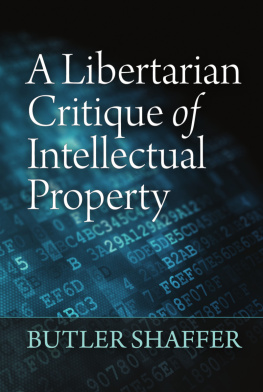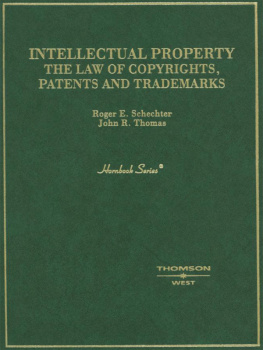Introduction
Butler Shaffer knows how to make people question their fundamental assumptions. He sometimes asks his students at Southwestern Law School, where for many years he has been professor of law, to vote between two candidates.
Candidate A is identified as a well-known critic of government, this man has been involved in tax protest movements, and has openly advocated secession, armed rebellion against the existing national government, and even the overthrow of that government. He is a known member of a militia group that was involved in a shoot-out with law enforcement authorities. He opposes gun control efforts of the present national government, as well as restrictions on open immigration into this country. He is a businessman who has earned his fortune from such businesses as alcohol, tobacco, retailing, and smuggling.
Candidate B is described thusly: A decorated army war veteran, this man is an avowed nonsmoker and dedicated public health advocate. His public health interests include the fostering of medical research and his dedication to eliminating cancer. He opposes the use of animals in conducting such research. He has supported restrictions on the use of asbestos, pesticides, and radiation, and favors government-determined occupational health and safety standards, as well as the promotion of such foods as whole-grain bread and soybeans. He is an advocate of government gun-control measures. An ardent opponent of tobacco, he has supported increased restrictions on both the use of and advertising for tobacco products. Such advertising restrictions include: (1) not allowing tobacco use to be portrayed as harmless or a sign of masculinity; (2) not allowing such advertising to be directed to women; (3) not drawing attention to the low nicotine content of tobacco products; and, (4) limitations as to where such advertisements may be made. This man is a champion of environmental and conservationist programs, and believes in the importance of sending troops into foreign countries in order to maintain order therein.
How do the students vote? Over the years, the voting results have given Candidate B about 75 percent of the vote, while Candidate A gets the remaining 25 percent. After completing the exercise and tabulating the results, I [Shaffer] inform the students that Candidate A is a composite of the American founding fathers (e.g., Sam Adams, John Hancock, Thomas Jefferson, George Washington, etc.). Candidate B, on the other hand, is Adolf Hitler. As one can readily imagine, the students react with shock.
Why do the students vote this way? The program of Candidate B sounds good to them, but they did not ask themselves a key question, and it is this question that Shaffer wishes by his experiment to bring to their attention.
That question is this: How did Candidate B intend to bring his program into effect? The answer in this case is quite clear: by using the force and violence of the State. That led to disaster, and this Shaffer maintains, is necessarily the case.
In his great book Boundaries of Order, Shaffer argues that people can best solve their problems and progress through peaceful social cooperation. To cooperate peacefully, they need to delimit property rights. As Shaffer puts it, If we are to have the resilience to make life-enhancing responses to the worldto assess risks and other costs, and to settle upon an efficacious course of actionwe must enjoy the autonomy to act upon our portion of the world without interference from others, a liberty to be found only in a system of privately owned property.
Shaffer takes great pains to show how people can resolve whatever problems arise from their mutual interaction through setting the appropriate boundaries of their property rights. In settling their disputes on an individual basis, they manifest their respect for one another:
Private property, as a system of social order, reflects the extent to which we are willing to acknowledge one anothers autonomy and to limit the range of our own activities. Private property is the operating principle that makes real Immanuel Kants admonition: Act so that you treat humanity, whether in your own person or in that of another, always as an end and never as a means only.
Unfortunately, there is another way that people can choose to act. They can decide to solve their problem collectively, through resort to the State. Shaffer leaves us in no doubt what he thinks of this:
The twentieth century demonstrated to thoughtful men and women the totally inhumane nature of any system premised on political collectivism. A sign on a church in the former East Berlin that read nothing grows from the top down, succinctly identified the anti-life nature of all forms of institutionally-directed, collective control over people. Collectivism is the ultimate expression of the pyramidal model of the universe. It is the epitome of power-based thinking (i.e., that it is appropriate for some people to exercise coercive authority over the lives and property of others).
In A Libertarian Critique of Intellectual Property, Shaffer applies his philosophy of individualism to a topic that has aroused a great deal of discussion among libertarians: are patents, copyrights, and the like legitimate? The results are illuminating.
Intellectual Property is a difficult topic, and a lesser author could easily get bogged down in legal technicalities. Not so Shaffer. As always, he penetrates to the fundamentals. He asks:
Are the origins of IP interests to be found in the informal processes by which men and women accord to each other a respect for the inviolability of their livesalong with claims to external resources (e.g., land, food, water, etc.) necessary to sustain their lives? Or, are they to be established by formally enacted rules generated by political systems?
Shaffer answers that IP has historically arisen, not through negotiation among individuals, but by the imposition of the State. Nor is this an accident. IP protection, he argues, could not have arisen through voluntary agreement. He succinctly explains why not:
We enter into an agreement, one that is binding only upon you and me. But when the statewith its monopolistic powersacts for the benefit of a few, all are legally bound by the rules whether they agree with them or not. If copyrights, patents, or trademark protections are not recognized among free peopleunless specifically contracted for between two partiesby what reasoning can the state create and enforce such interests upon persons who have not agreed to be so bound?
Defenders of IP claim that without it, the progress of knowledge and invention would be blocked, but Shaffer dissents:
The notion that the anticipation of monopolistic rewards such as patents and copyrights is essential to the creative process, is negated by much of human history. I am unaware of any copyrights having been issued to writers such as Aeschylus, Homer, Shakespeare, Dante, or Milton; or composers such as Beethoven, Bach, Mozart, Wagner, or Tchaikovsky; or artists such as Van Gogh, Michelangelo, Da Vinci, Rembrandt, or Renoir. Were Leonardos or Gutenbergs inventions, or the Egyptian pyramids, or the Roman aqueducts, rewarded by state-issued patents?
Appealing to Paul Feyerabend and Arthur Koestler, Shaffer argues that the creative process works best in the absence of imposed uniformities and limits.No more than can spontaneity be commanded, can the creative process be constrained by boundaries and barriers that protect the creative outcomes of others.
Shaffer writes with genuine philosophical depth, and A Libertarian Critique of Intellectual Property is an indispensable contribution to libertarian theory.
David Gordon
Los Angeles, California
November 5, 2013
Ibid.
Ibid.
See p. 18 in this book.
See p. 21 in this book.













